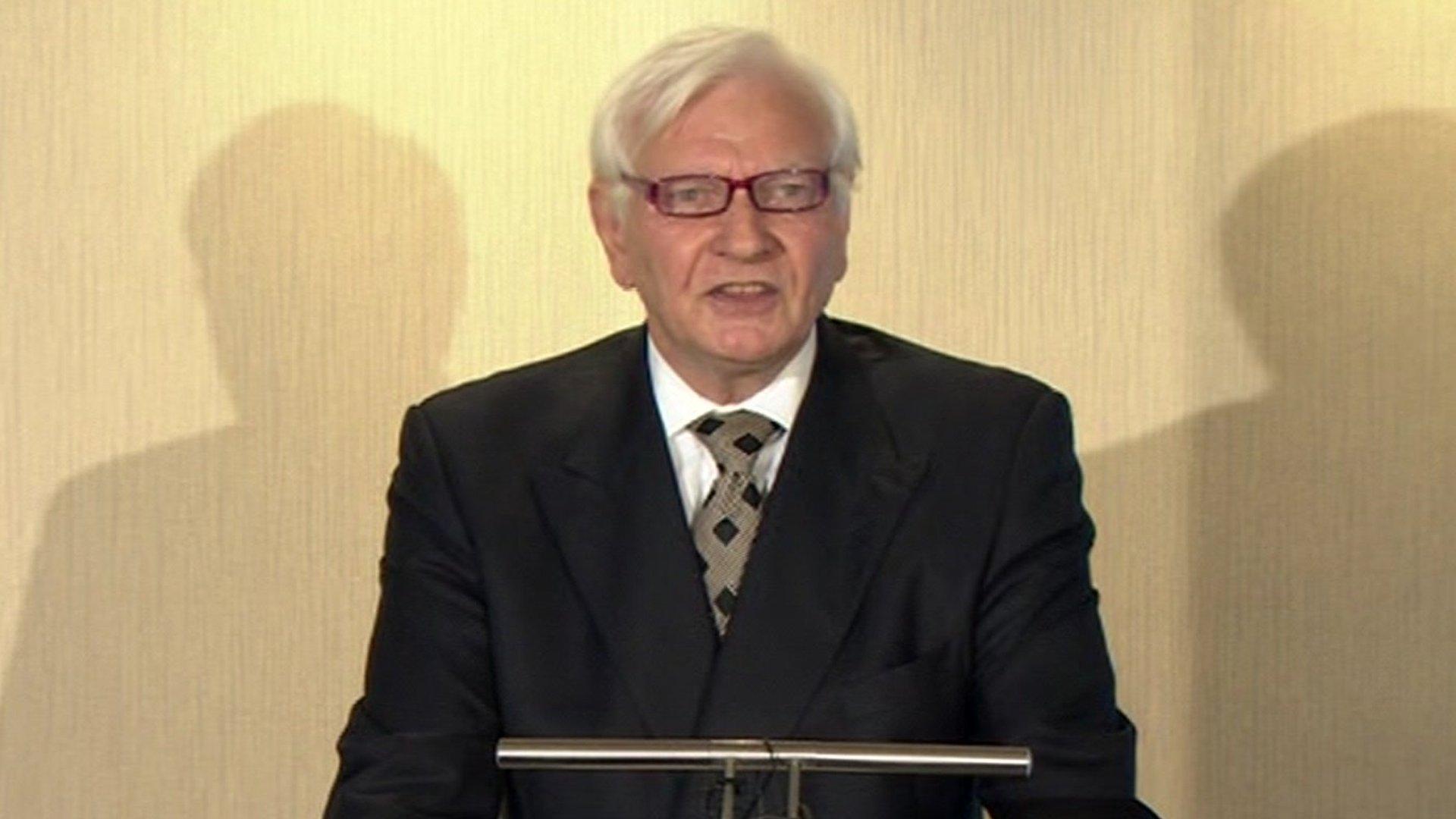How did one man's claims spark a major child abuse inquiry?
- Published
Tom Symonds reports on how the inquiry began and ended
The claims were horrifying. Politicians, generals and spies had tortured and sexually abused children in apartments, hotels, and army bases. Three boys had been murdered.
The allegations at the heart of Operation Midland came from one man, legally entitled to anonymity, known by the pseudonym "Nick".
His story spanned nine years: from 1975, when he was seven, to 1984.
The Met began investigating in autumn 2014.
Months earlier, "Nick" had given the news website Exaro an account of the alleged abuse. Police asked to meet him and he was eventually interviewed by detectives over several days.
He told them he was first sexually abused by his stepfather, an officer in the army, who he claimed introduced him to more senior military figures, including the then-commander in chief of UK land forces, General Edwin Bramall.
This group, "Nick" alleged, went on to sadistically abuse him over a four-year period, mostly at military bases in south east England.
'Abused by prominent men'
"Nick" said his stepfather eventually became estranged from the family, and in the late 1970s he moved away with his mother, first to Oxfordshire, then to London.
There, he claimed, the abuse continued until he was 16.
He said cars would be sent to drive him to sexual abuse sessions attended by prominent men, where he claimed he was abused alone and alongside other boys.
Locations included gentlemen's clubs and the Dolphin Square apartment complex in central London. But how the alleged network operated - the identities of the drivers, and how they concealed what was going on - was not explained.
In a backroom of the Conservative bastion, the Carlton Club, Nick said he was introduced to Edward Heath, prime minister between 1970 and 1974, who he claimed proceeded to abuse him - the first of several alleged incidents involving the late Tory leader.

Former Conservative MP Harvey Proctor called for Met chiefs to resign after Operation Midland was dropped without charges being brought
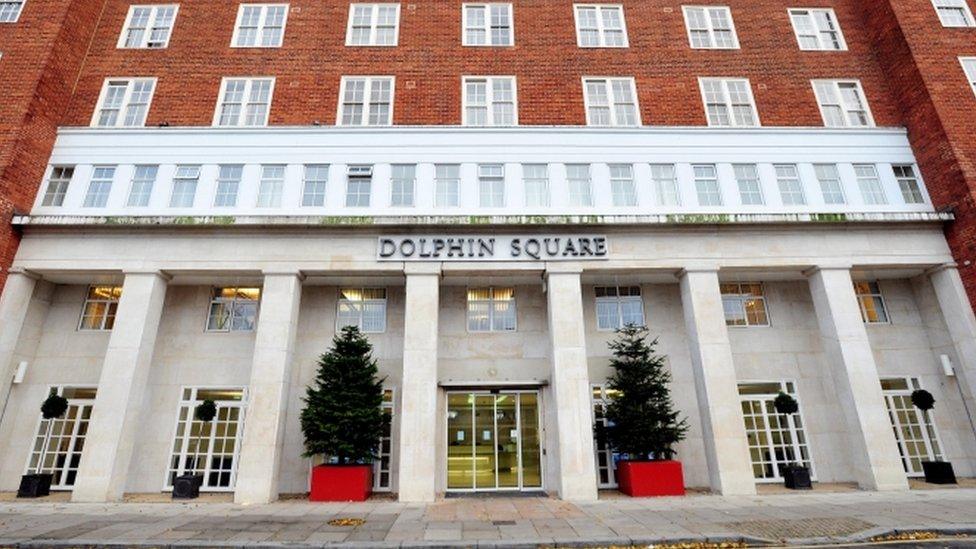
"Nick" alleged that some of the abuse took place in the Dolphin Square apartments in central London
"Nick" also accused former Home Secretary Lord Brittan, former Conservative MP Harvey Proctor, and Jimmy Savile. More recently, he said he identified the late Labour peer Lord Janner.
He gave the first names of two people from "military intelligence", and he accused the former diplomat Sir Peter Hayman, who had been exposed as a member of a paedophile campaign group in the early 1980s.
There were other men, he said, whose identities he didn't know.
In 2014 he told the BBC those he accused were "quite open about who they were. They had no fear at all of being caught, it didn't cross their mind," he said. "They created fear that penetrated every part of me, day in, day out".
Murder claims
But he also claimed the "group" killed three boys.
One, he alleged, was murdered in a staged hit and run accident in Kingston in south London.
The second, he said, was strangled. "Nick" named the man he said did it: Harvey Proctor.
He claimed another died because of injuries deliberately inflicted during an abuse session.
The police took "Nick's" claims very seriously and appealed for witnesses. The officer leading the inquiry, Det Supt Kenny McDonald, said in 2014 that detectives considered what "Nick" told them to be "credible and true".
Det Supt Kenny McDonald: "I believe what "Nick" is saying is both credible and true"
Journalists were astonished. The police had openly reached a judgement only a jury can make. Amid bitter criticism, nine months later the Met discarded its assertion that "Nick's" story was "true".
Behind the scenes, detectives were unable to corroborate the claims.
There had been a further appeal for witnesses in March 2015, and in the same month police raided the homes of Lord Bramall, Mr Proctor, and the late Lord Brittan. The raids were reported by the media and those "Nick" accused were thrust into the public eye.
Insufficient evidence
Lord Bramall and Mr Proctor were questioned under caution - the latter on two occasions. Both denied the allegations from the start, and Mr Proctor held a furious press conference to denounce "Nick" and the police.
"I am a homosexual," he said, "I am not a paedophile or a pederast". He said "Nick" was a liar.
Lord Bramall was cleared in January this year - and now Harvey Proctor has been too. Police said they found insufficient evidence even to justify passing the case to prosecutors, neither in the case of the living suspects, nor those Nick named who've died.
So why did the police take "Nick" so seriously and how did he come to make the allegations?
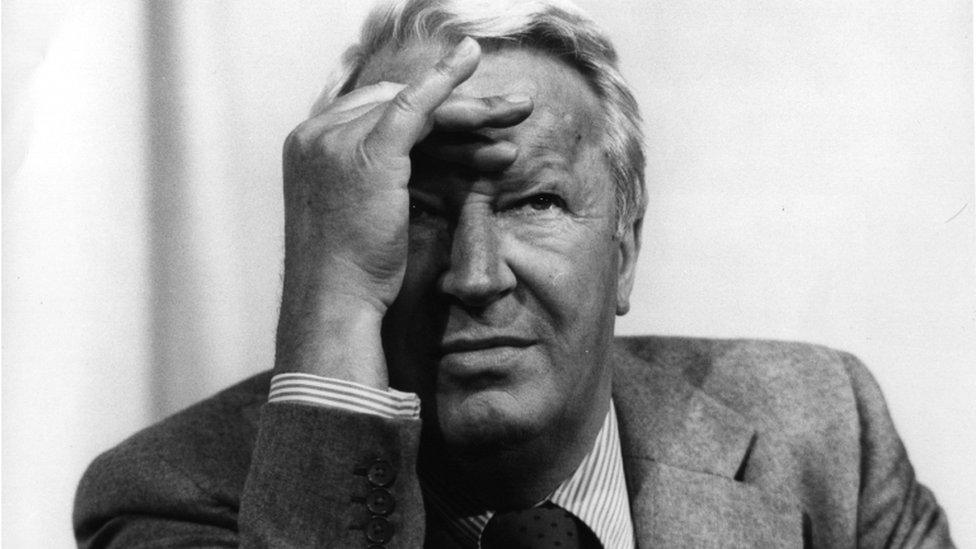
Former Prime Minister Ted Heath was among those accused of child abuse by "Nick"
He is a professional man in his 40s. He gave a detailed account, which apparently contained information he would not have known if he had simply imagined the story.
He first disclosed his alleged abuse to police in 2012. This was to Wiltshire Police and he did not name prominent men, just his stepfather, who by then was dead. Police could take no action.
He next spoke to the Met's Operation Yewtree to allege abuse by Jimmy Savile.
Then, in 2013, he was interviewed by a television documentary about Savile. At this point he discussed a wider "group" of alleged abusers without disclosing names. His account was consistent with later descriptions he gave the BBC. With one exception.
The alleged murders were only disclosed in 2014 - after the initial media coverage that year of his wider allegations - yet they became the focus of Operation Midland.
Missing child
"Nick" did not disclose the identities of the alleged victims, but police carried out photofit exercises with him and settled on likenesses of two boys, which were later shown to Mr Proctor during questioning.
One resembled Martin Allen, who disappeared in 1980 aged 15,, external and in a statement today the Met said it had investigated the possibility he was amongst the three alleged victims.
Apparently without knowing the boy's name, "Nick" gave an account of the second alleged murder which he dated to within two months of Martin going missing.
He also identified a property he thought was connected to the alleged death. One man who lived there was later convicted of child sexual abuse.
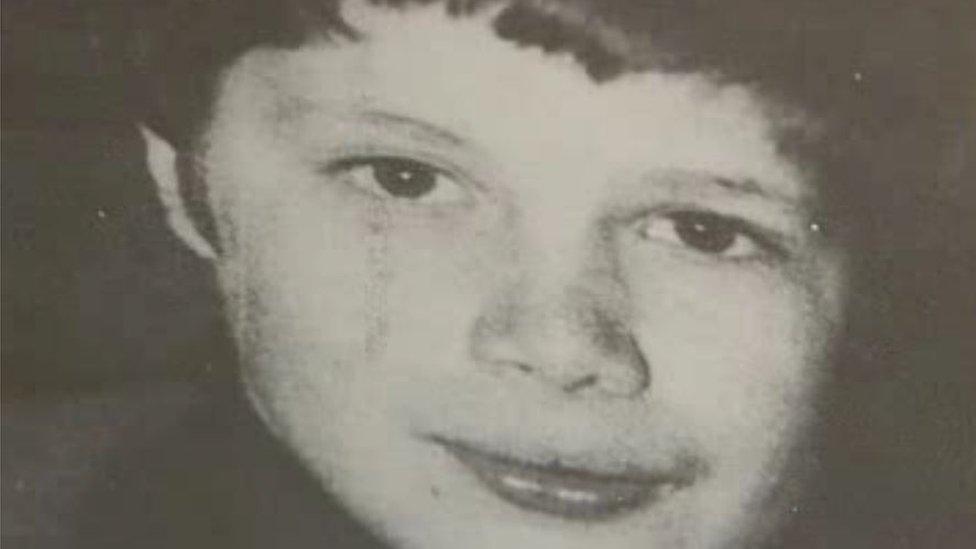
Martin Allen, 15, was last seen at King's Cross Tube station making his way home from school in November 1979
The Met today said it would continue a separate missing person inquiry into Martin's disappearance, but would give no further details.
The alleged incident in which a boy was run over in Kingston was also a major focus for police.
"Nick" said it happened in the summer of 1979. He and the boy, a school friend, were walking in a suburban area when a car revved its engine and ran down the friend. Nick was put in the back of the car and driven off. He never saw the boy again.
The BBC spent weeks investigating this account. We found no matching deaths from the time, or similar stories in local newspaper archives. Ambulance records had not been kept. Police officers who worked in the area didn't remember anything.
No corroboration
We spoke to "Nick's" schoolmates, though to protect his identity, we were unable to give his name. However none remembered the alleged murder victim nor an incident resembling the one "Nick" described.
"Nick" gave us the friend's first name and we traced five boys who shared it from the school. We found no evidence they had been involved.
It has been impossible to find evidence of the incident, but also impossible to prove definitively it didn't happen. "Nick" remains adamant that it did.
Nick has been unable to explain why none of the adults in his life raised concerns that he was missing from home and school on a regular basis, or why they failed to spot when he was as badly injured as he describes.
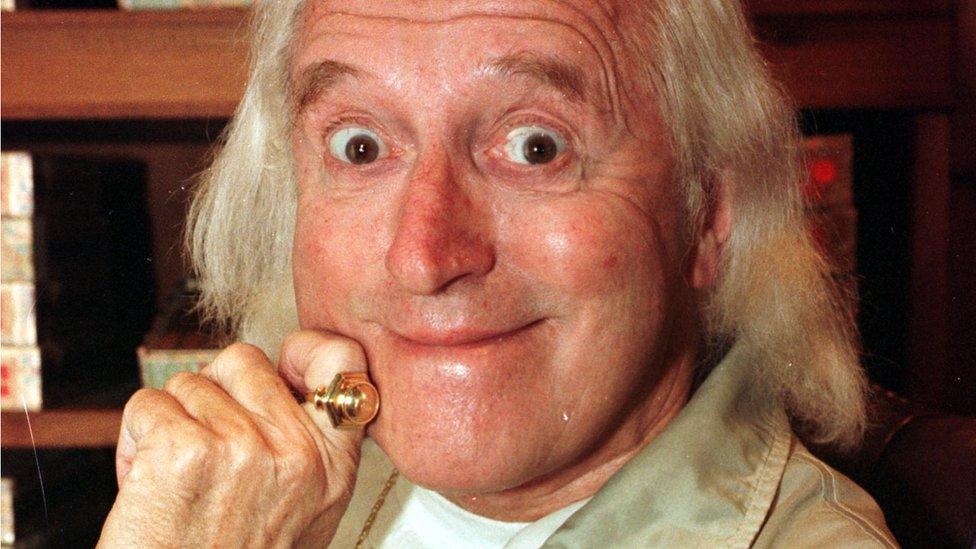
Unlike when allegations against Jimmy Savile emerged, there was no rush of complainants with similar stories following "Nick's" claims, despite police appeals
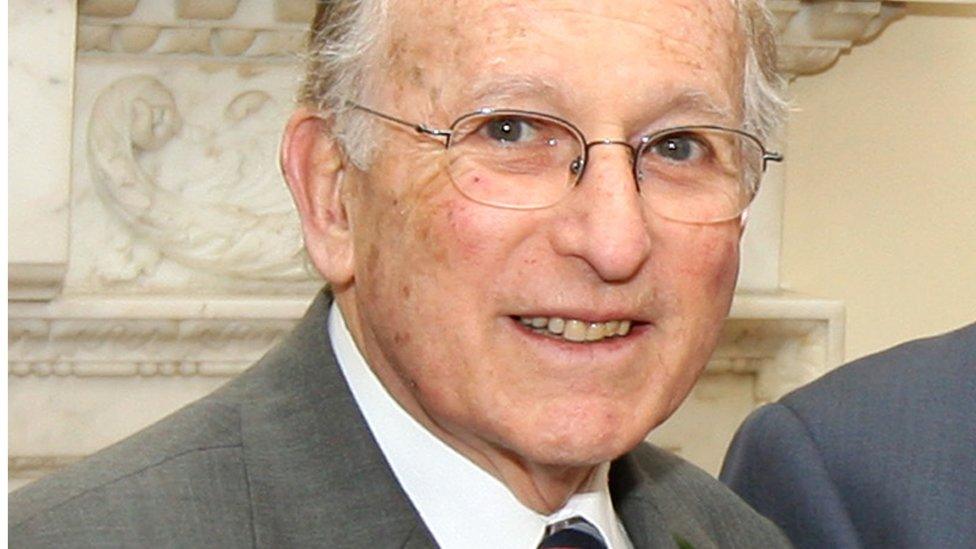
"Nick also made allegations against former MP Lord Janner, who died in December
By "Nick's" own account there were several unidentified boys - now men - who could back up his allegations. He said he had come forward in an attempt to encourage them to.
Today police said they had received information from two further complainants, but their evidence did not provide the corroboration necessary for charges to be considered.
The Met today closed Operation Midland but it has asked a retired judge, Sir Richard Henriques, to carry out an independent review of the investigation. He is due to report his findings to Commissioner Sir Bernard Hogan-Howe later this year.
- Published21 March 2016
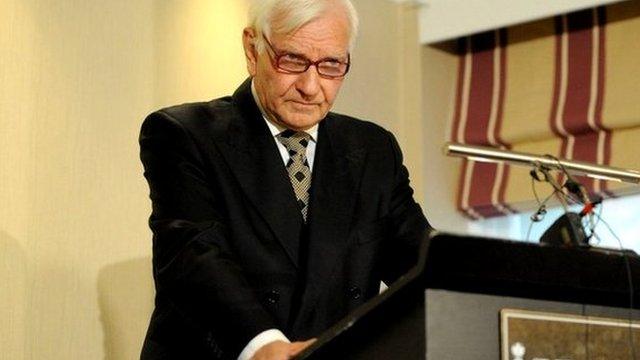
- Published1 December 2015

- Published21 September 2015
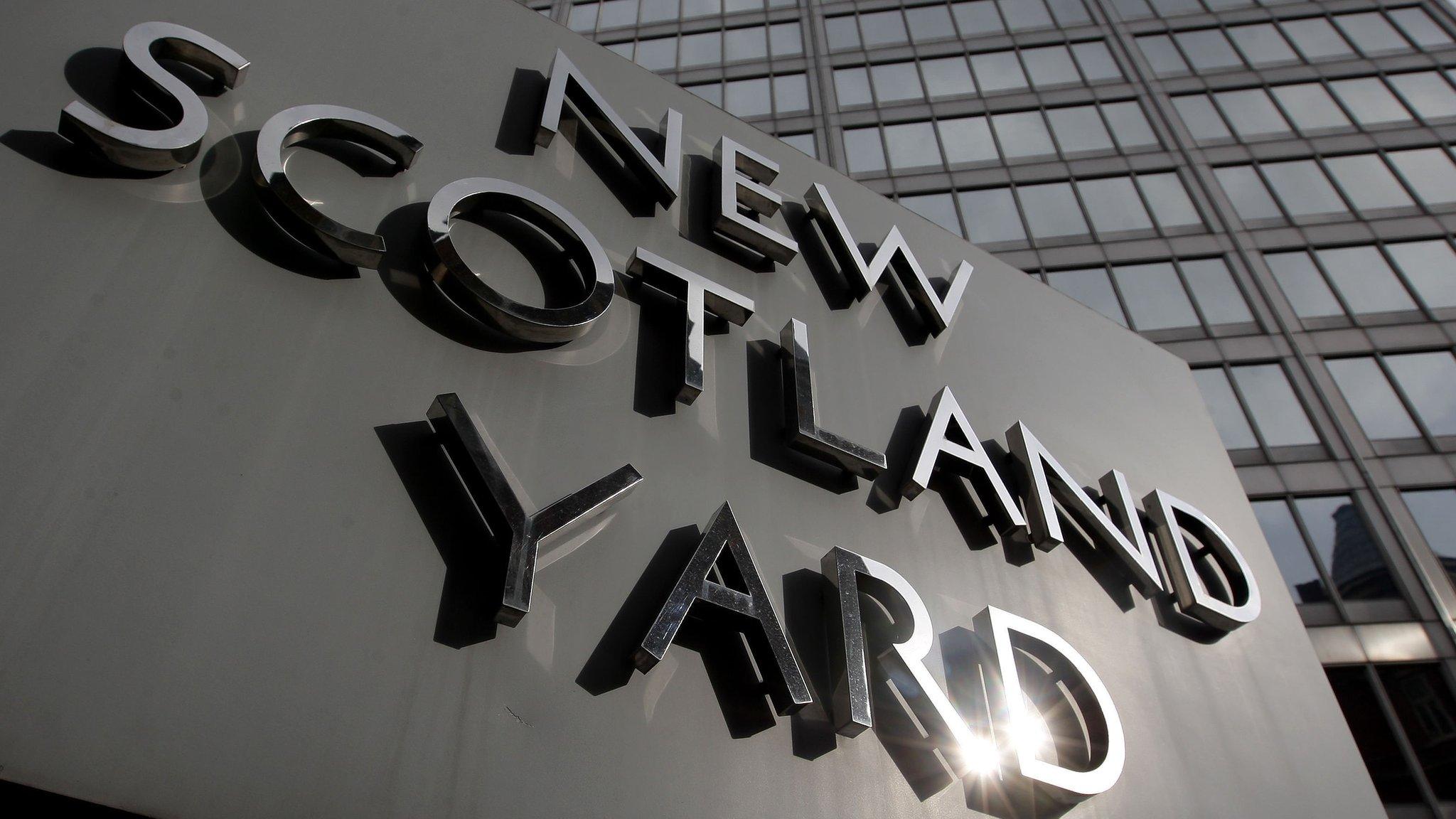
- Published18 September 2015
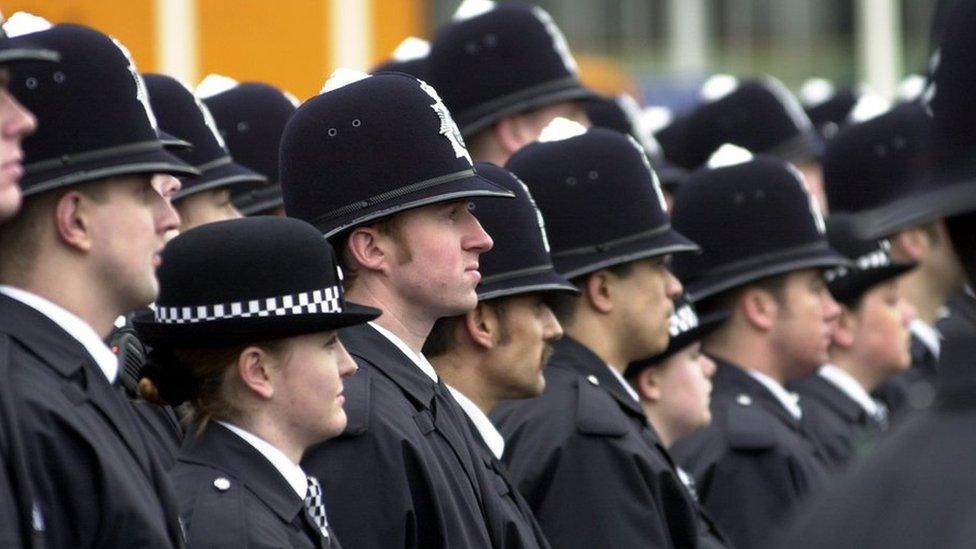
- Published25 August 2015
